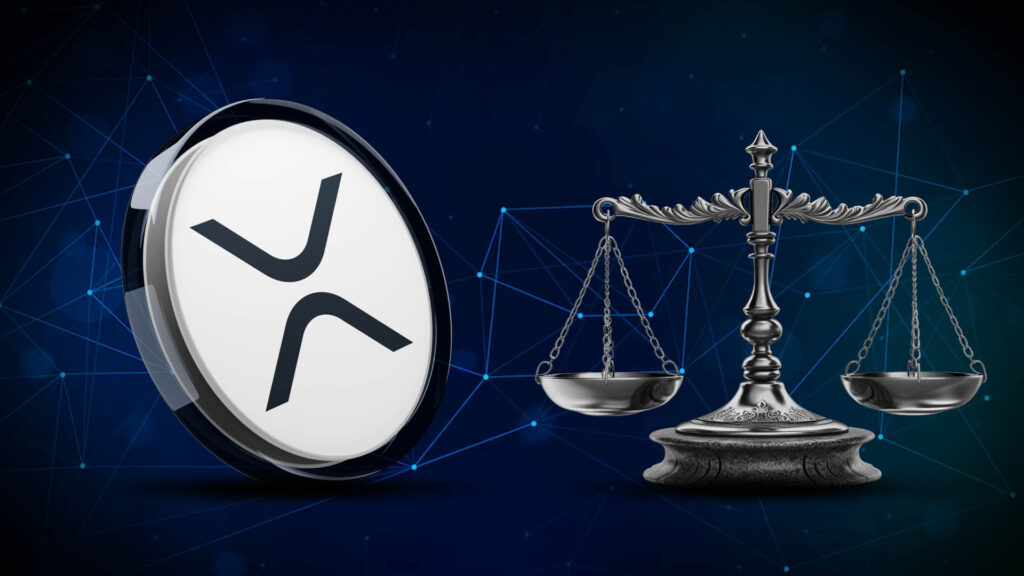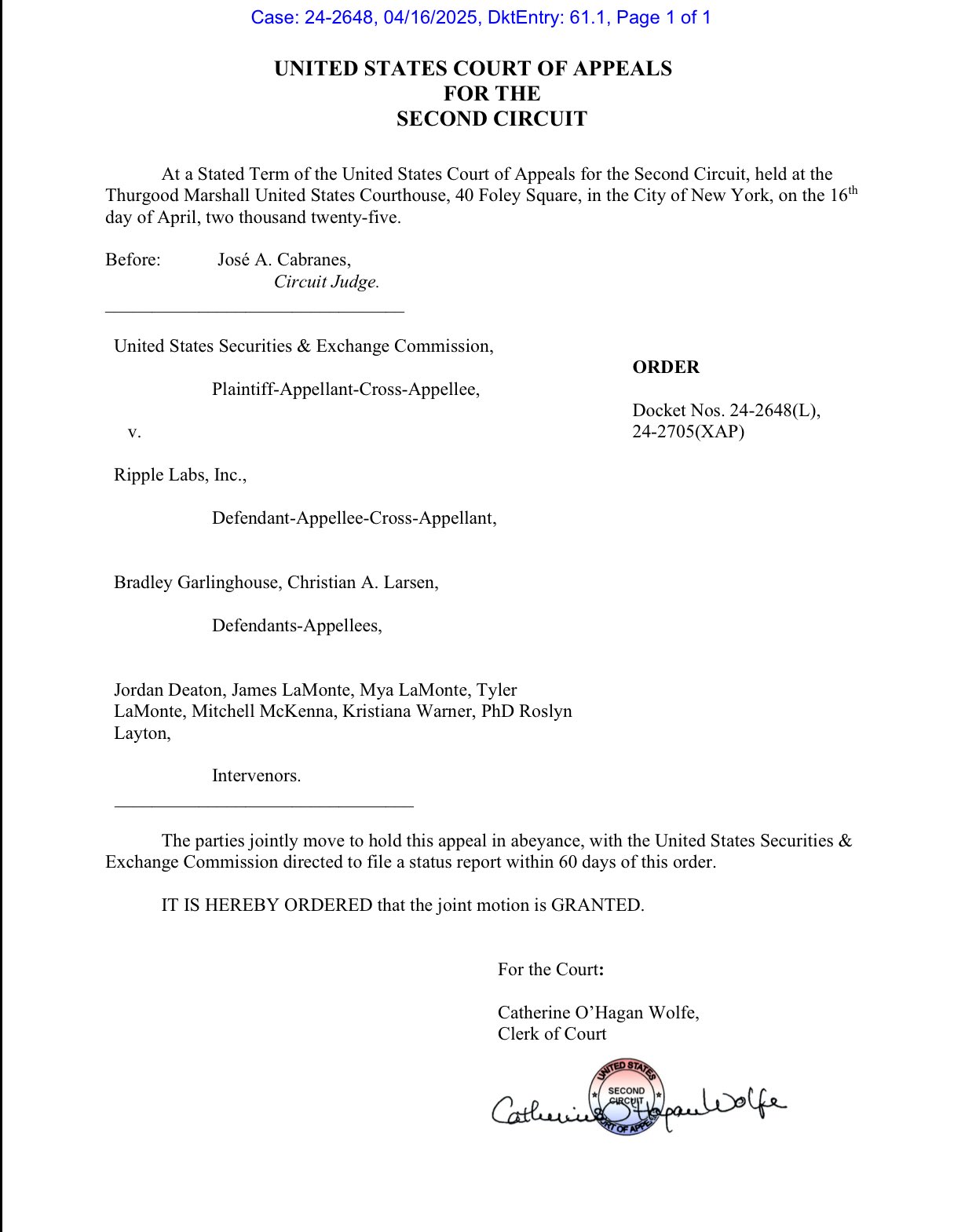XRP Lawsuit Update: Here’s Why SEC Paused The Lawsuit & How It Could Unfold?

Key Insights
- Ripple and the SEC jointly requested a pause in their ongoing XRP lawsuit last week, citing a tentative settlement nearing completion that would resolve all pending appeals.
- Assessing the potential unfolding of the Ripple-SEC Lawsuit after the pause.
- U.S Court ruled that XRP is not a security.
The Ripple [XRP] lawsuit update noted a pause in the ongoing case to let XRP and U.S. Securities and Exchange Commission (SEC) to negotiate ahead of a tentative settlement.
XRP Lawsuit Update
Ripple Labs and the SEC made a collective request during April 2025 for a suspension of their XRP lawsuit appeals as they entered into a tentative agreement to resolve their outstanding legal disputes.
Ripple Labs partnered with the U.S. SEC to submit an appeal motion with the Second Circuit Court of Appeals that would save judicial resources until the SEC provided their approval.
The court approved a 60-day suspension starting from April 16 while needing a June 15 status report.
The legal complaint against Ripple alledged the company had sold XRP without proper security registration.

The court decision from 2023 indicated that institutional XRP sales violated securities laws but programmatic sales remained legal leading to a $125 Million fine against Ripple.
Through a settlement agreement Ripple will need to pay $50 Million while allowing for a $75 Million refund.
A favorable crypto-friendly outcome during the settlement was speculated to exist because of both strategic timing under new chair Paul Atkins, along with SEC leadership changes and complex appeal processes.
The regulatory space for U.S. cryptocurrency legislation seemed closer to a conclusion based on this brief expectative period.
Potential Outcome of Ripple-SEC Lawsuit
Opinions on the latest XRP lawsuit update after the halt of this litigation pointed to a resolution that could have a significant effect on XRP and the wider crypto industry.
The SEC has to submit their update status on the aforementioned dates. Legal analysts indicated this suspension could result in a potential eventual settlement.
In 2023, the court decided that if XRP is used by people for buying and selling things in stores, it is not considered a security.
This would be helpful for Ripple in other legal situations that come up later. But there was still a challenge.
This meant there was uncertainty in how XRP would be used in certain financial markets. Until then, it’s hard to move forward with XRP developments that depended on this litigation.
So, Ripple and other interested parties in XRP were at some level of uncertainty and adversity until the U.S. courts made these rulings.
Since the SEC had not issued any comment, they were in abeyance.
Until then, Ripple would perhaps need to attain a crisp legal victory or get unmistakable regulatory direction.
A positive conclusion of the case has the potential to attract institutional investors to XRP assets.
A negative outcome from the court proceeding, together with protracted delays, could likely reduce XRP adoption rates and extend the challenges.
Why ‘XRP is Not a Security’ Clarity was Needed?
News about the XRP lawsuit update that cleared the air that “XRP was not a security” brought rising confidence to every sector within the ecosystem.
In 2020, when the SEC intervened, R3 had already chosen XRP as the first settlement asset for its global payment platform while understanding its ability to function as an international transfer currency.
XRP served as an initial choice within R3’s Corda Settler network because of its swift operations, along with the ability to function with both conventional financial systems and cryptocurrency infrastructure.
The secure legal status Ripple achieved during 2025 created perfect alignment among technology, user adoption, and trust.
New developments could push institutions toward adoption since they will have gained clarity with regulatory changes.
XRP could achieve wider global settlement utility if regulations were functional, along with a legal distinction between the currency and securities.




